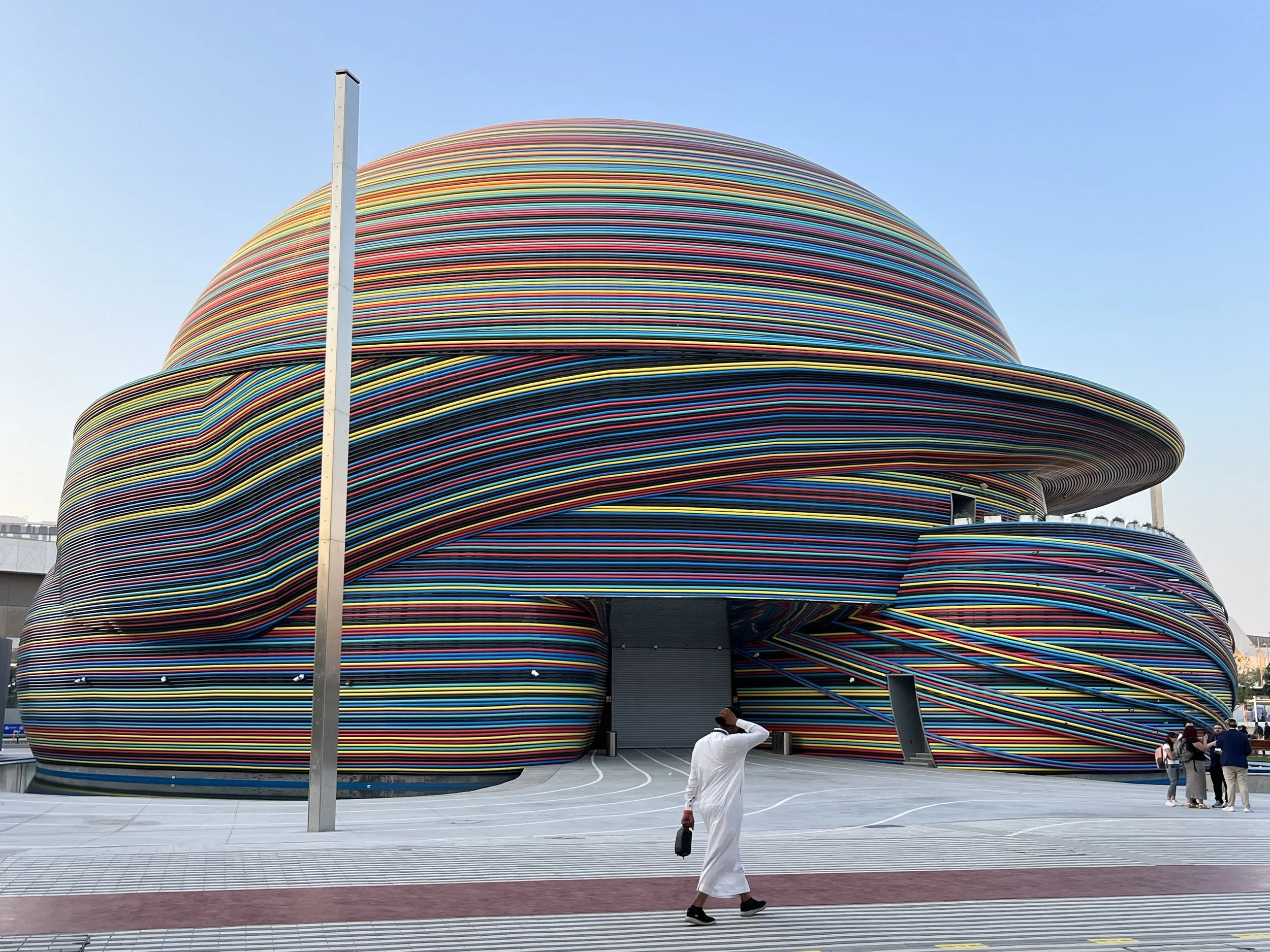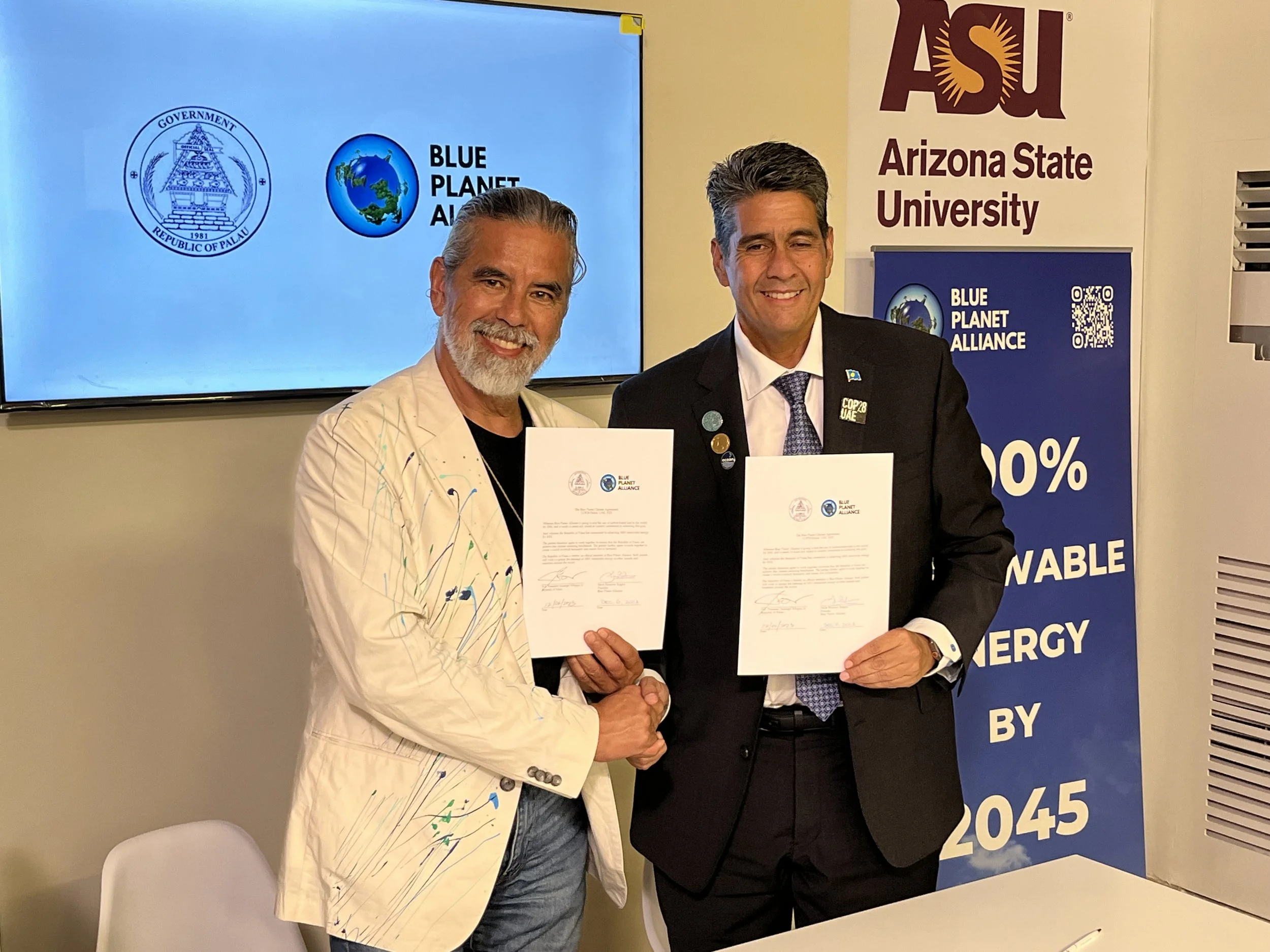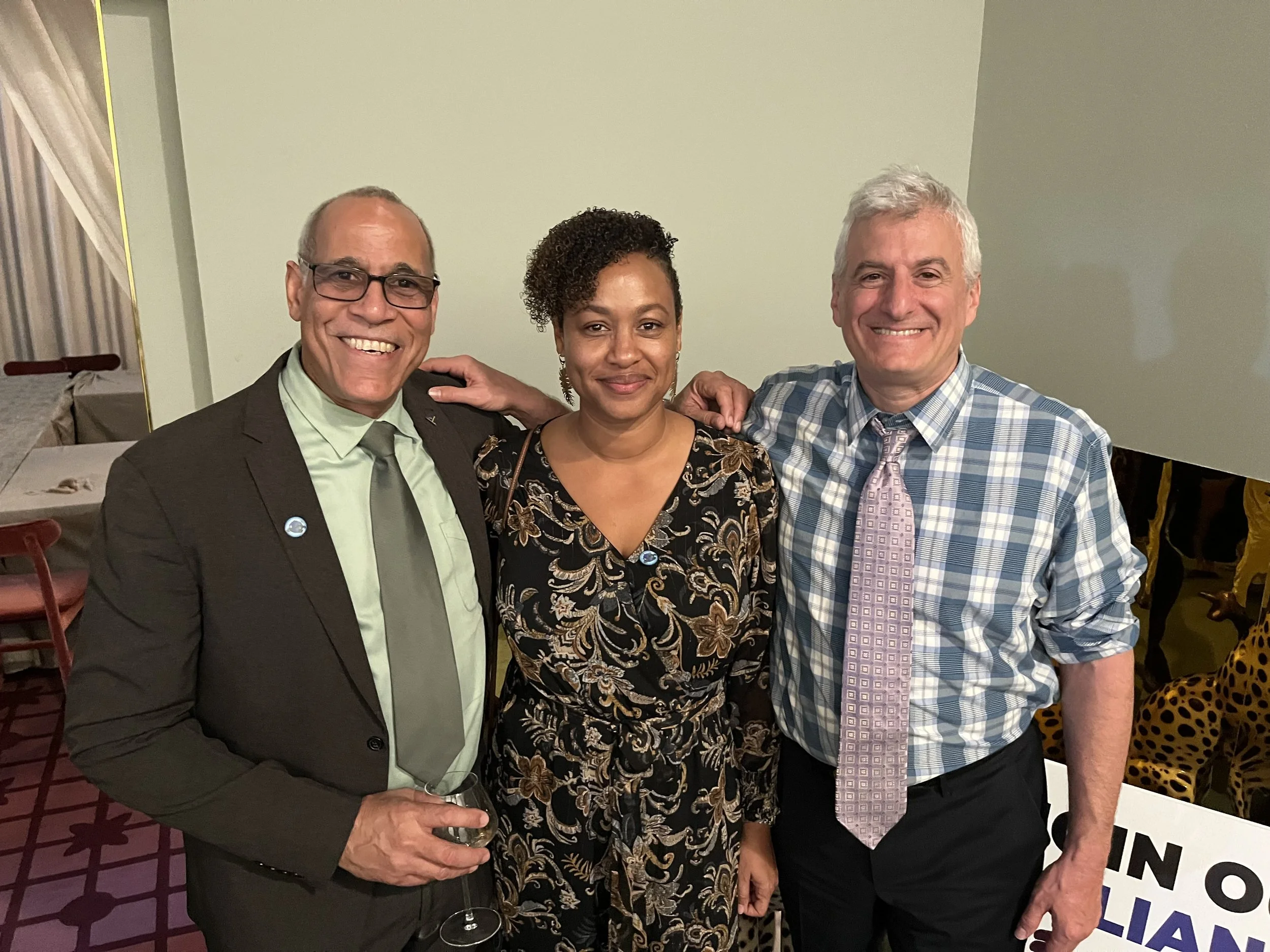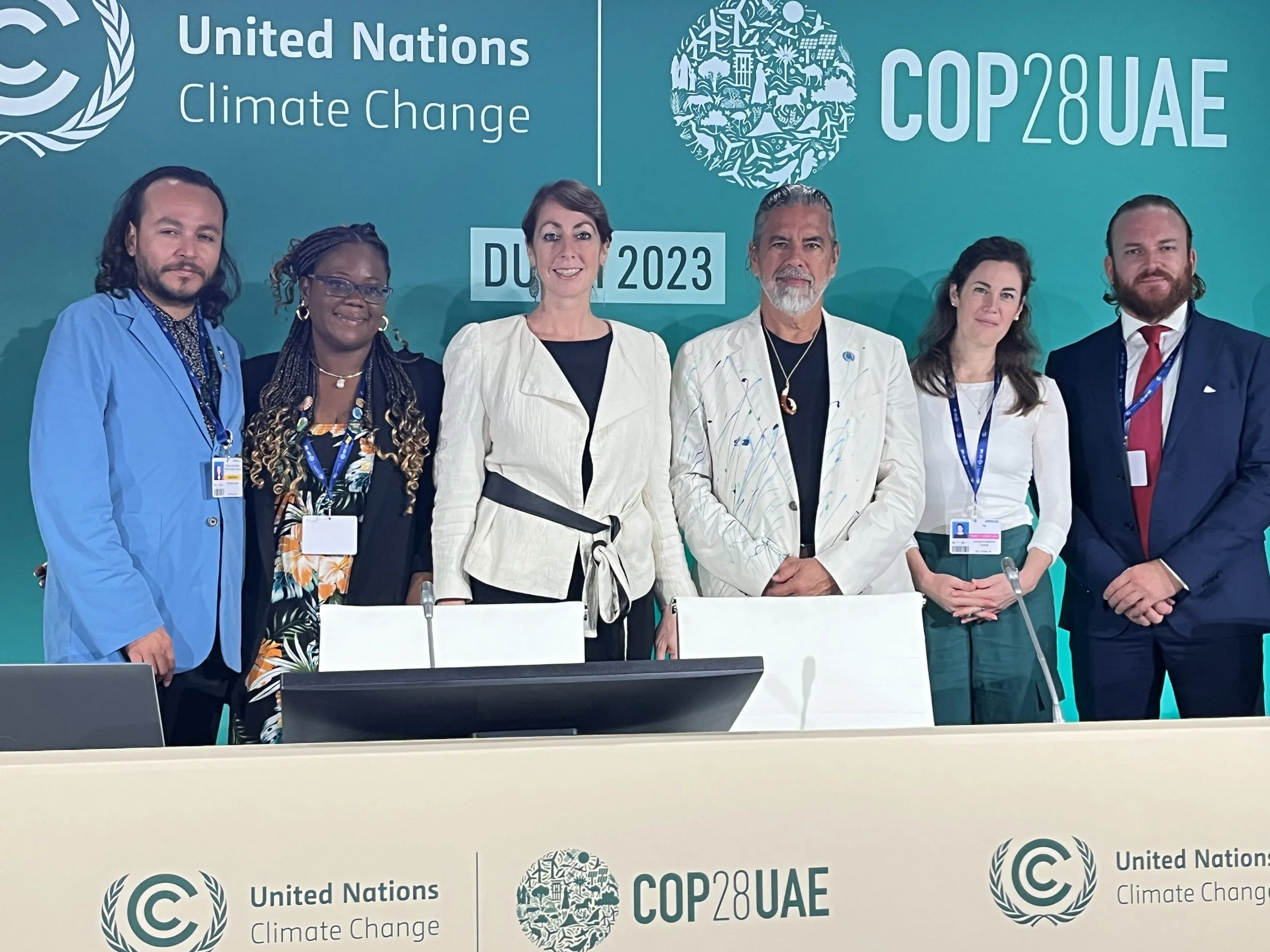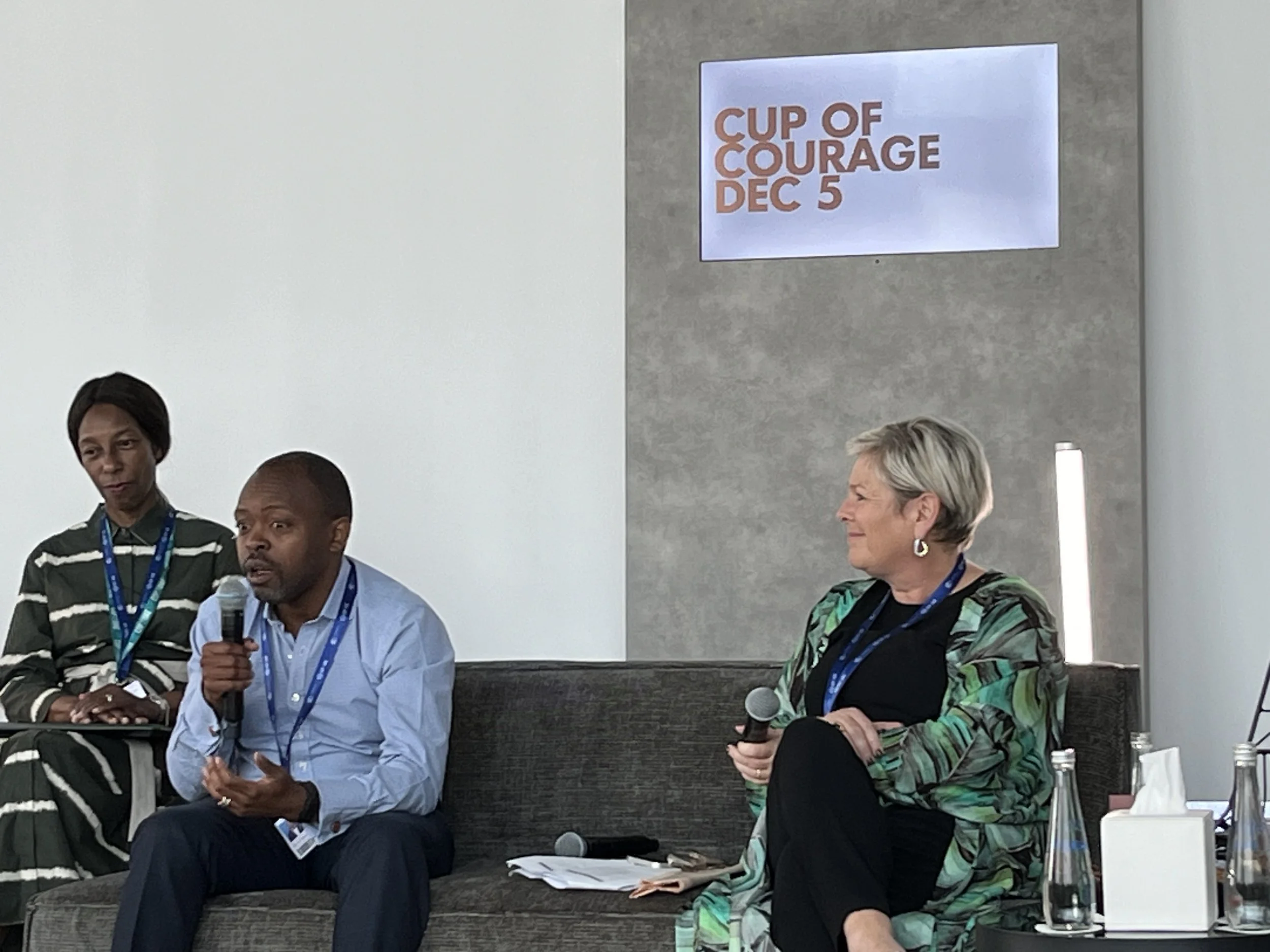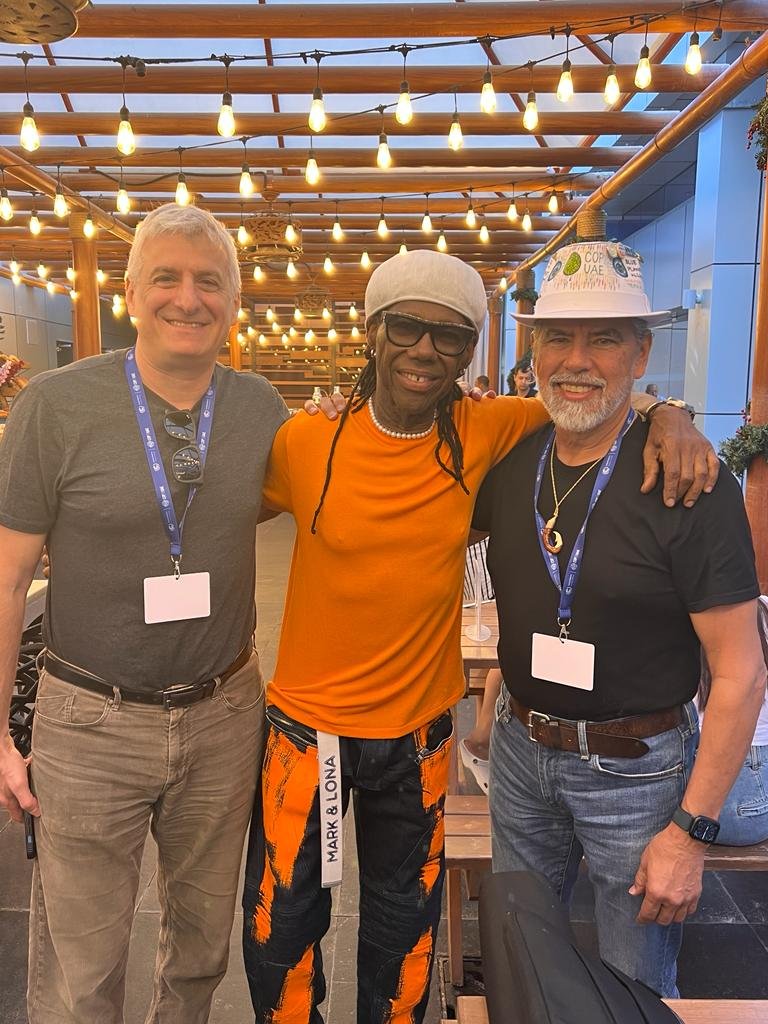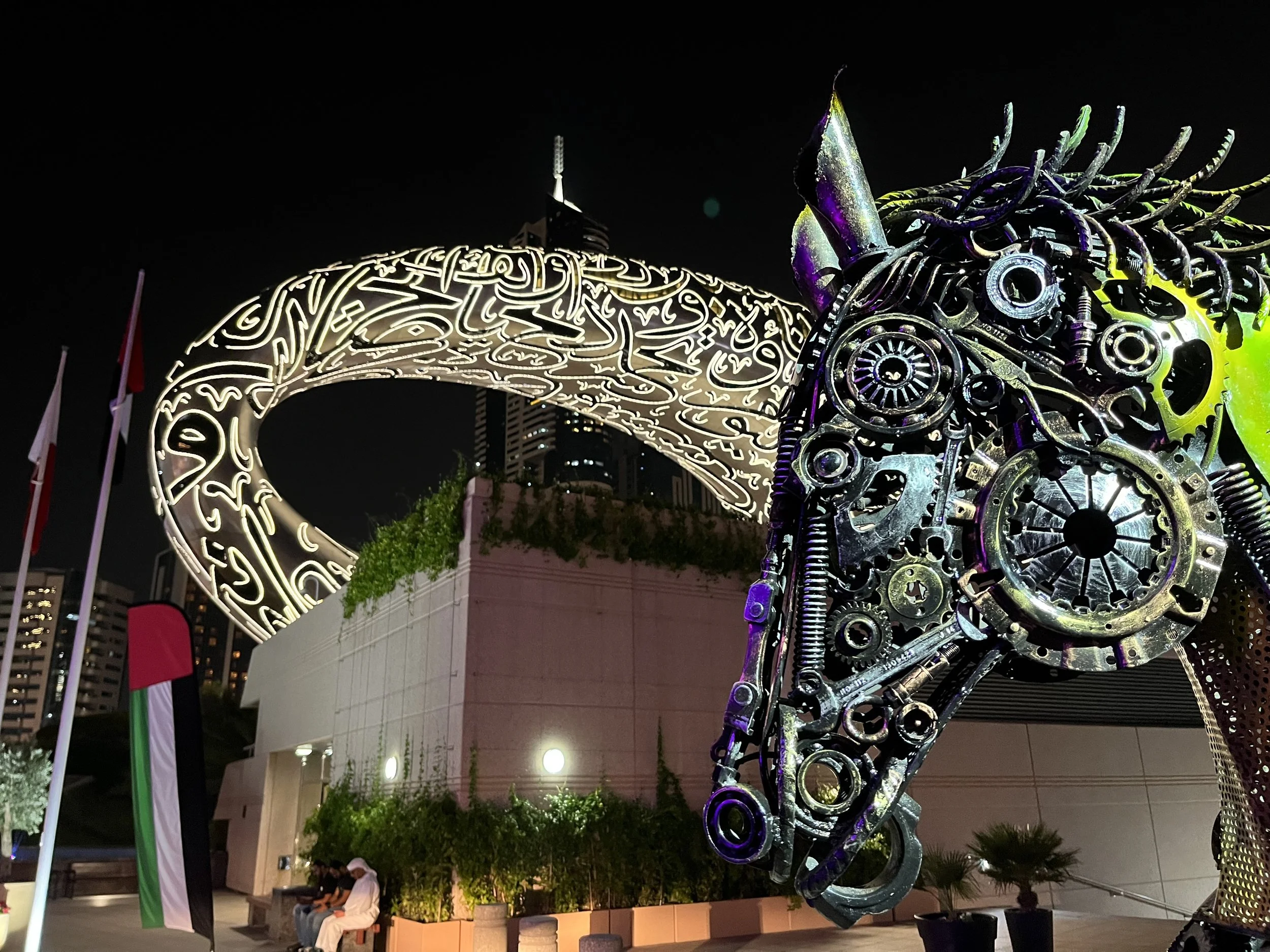The COP Is Half Full
By Lance Gould
CEO, Brooklyn Story Lab
A pavilion in the Blue Zone at COP28 in Dubai Photo: Lance Gould
The conclusion to December’s UN climate conference — a.k.a. COP28, the 28th Conference of the Parties — is subject to wildly different interpretations.
To some, a landmark deal was reached, with an unexpected agreement to "transition away" from fossil fuels. This language is a first in COP verbiage, and was widely unexpected, given the opposition to the idea from so many oil-producing nations, including the host country, UAE. (Note that the President of COP28 was also the CEO of the UAE’s largest oil company, the $12b valued ADNOC — the Abu Dhabi National Oil Company). Given UN rules, even one "no" vote could scuttle any resolution, so the idea that almost 200 countries would agree to such language is indeed a historic moment in the right direction.
And yet… we all need to curb our enthusiasm, as there are, as one critic pointed out, a “litany of loopholes” in the deal, and many critics point out that the science behind the trajectory of ever-rising average global temperatures will not be slowed by a vague and voluntary agreement to eventually stroll away from fossil fuels at some unnamed time in the future.
Another one-step-forward-one-step-back-one-step-to-the-side moment took place on COP’s opening day, when news broke that the negotiators voted to officially adopt the Loss and Damage Fund — money set aside by wealthier nations to help poorer nations pay for the infrastructure to slow climate change and to navigate its negative impacts. Again, a historic achievement, but also too little too late (the UAE and Germany both pledged $100 million to this fund at the beginning of COP, but critics point out that it will take hundreds of billions, not millions, to be effective).
While neither achievement goes far enough, pollyannas can point to the fact that even having official language for the very first time that mentions transitioning away from dirty energy could be the signal that investors and venture capitalists need to start the process of reimagining the energy landscape, and signals the apex of the fossil-fuel movement, with a downward (but looooong) slide from here.
Regardless of what took place in the negotiating halls, there are other reasons to consider COP28 a success, based on what was happening among the nearly 100,000 other attendees — 99% of whom were not oil lobbyists (though the number who were set a dubious record, not helped by the fact that, for the first time at a COP, OPEC had its own pavilion).
These other attendees used COP as a launching pad for new initiatives or to bring attention to their already-underway campaigns. Here is a list of five of those ideas, all connected to the work of Brooklyn Story Lab.
1) Blue Planet Alliance: Climate visionary Henk Rogers led the movement in Hawaii that helped it to become the first U.S. state to pass a law mandating a 100% transition to renewable energy by 2045. After more than 20 U.S. states and territories followed suit with their own versions of that law, Rogers founded Blue Planet Alliance (BPA) to bring that success to other islands, around the world. At COP28, BPA signed Blue Planet Climate Agreements with Palau and Curacao, making them the fourth and fifth islands to join the movement and to officially announce their intentions to transition to 100% renewable energy. With more islands on the way, soon BPA will have a sizable bloc of countries and territories, a bottom-up movement committed to ending the use of carbon-based fuel.
Blue Planet Alliance founder Henk Rogers (left) signs a Blue Planet Climate Agreement with Republic of Palau President Surangel Whipps, Jr. at COP28
2) Pyxera Global: Indigenous communities around the world are renowned for being such mindful and expert stewards of the environment. But what would happen if that wisdom were lost? That is a real danger, given the deleterious impacts of climate change. Swaths of land are becoming uninhabitable — or swallowed up altogether by rising sea levels. In order to protect the wisdom of communities on the other side of the Digital Divide, nonprofit Pyxera Global launched the Partnership for Digital Justice in Dubai. The initiative will focus on the preservation of Cultural Heritage, Inclusivity, Artifacts, Records, and Archives (CHIARA) that are vulnerable to both climate change and the ravages of time. The project will digitize these materials, and by using metadata, will make them more readily available to scholars and consumers, which will thus also make Artificial Intelligence more inclusive.
Live from Dubai, where Pyxera Global launched the Partnership for Digital Justice
3) Caribbean Climate-Smart Accelerator: If we’re going to successfully reverse the trajectory of rising average global temperatures (a.k.a. climate change), we need to transition away from fossil fuels everywhere. We can’t just do so in so-called “developed countries” or the Global North. We need to aid less-resourced countries, the ones that are the least responsible for climate change and yet most vulnerable to its negative impacts. The Caribbean Climate-Smart Accelerator (CCSA) is working to deliver resilience, social development, and broad-based economic growth for the Caribbean’s Small Island Developing States (SIDS), helping them receive assistance to become more resilient. At COP, CCSA launched its new Climate Smart Map, an innovative interactive tool that allows philanthropists, investors, and project developers to aggregate data on the region — across several territories — and use that information to create the economies of scale that each territory lacks individually. The map showcases the projects on the ground and includes several data elements on each territory including climate impacts, vulnerability, governance and readiness. This not only serves to address access to information (which has been a challenge in the Caribbean), but it also provides a collective view that hasn't been available previously.
Caribbean Climate-Smart Accelerator Director of Public-Sector Projects Kiesha Farnum (middle) with Permanent Representative of Curaçao & St Maarten to the World Meteorological Organization (WMO) Albert Martis (left) and Brooklyn Story Lab CEO Lance Gould (right)
4) Peace Boat US: Science is a North Star. Whether regarding COVID, climate, or any other obstacle impeding progress or sustainable development, the mantra “follow the science” is always sage council. And Peace Boat US has a program that connects science-proficient youth from climate-front-line countries with ocean expeditions focused on research, enriching their understanding of marine science and climate action on a global scale. This year, the Youth for the SDGs initiative — as Peace Boat US Director Emilie McGlone shared in detail at multiple events at COP28 in Dubai — brought young people, on one such journey, from the Cook Islands, Trinidad and Tobago, Palau, Panama, and elsewhere to the Arctic Circle to study kelp, biomimicry, data collection, and geothermal studies, among other topics. The program has been officially endorsed by UNESCO as a “contribution” to the UN Decade of Ocean Science for Sustainable Development.
Peace Boat US Director Emilie McGlone (third from left) at official UN COP28 press conference, with (from left), Roberto Cerda, member of Mexico´s National Committee for the UN Decade of Ocean Science for Sustainable Development; Khadija Stewart, Blue Planet Global Ambassador; Henk Rogers, Founder, Blue Planet Alliance; Jessie Turner, UN Foundation’s Executive Director of the International Alliance to Combat Ocean Acidification; and Peter Houlihan,
Executive Vice President, Biodiversity & Conservation at XPRIZE
5) The B Team: Climate action advocate and investor James Mwangi helped come up with a climate solution so innovative — and yet so obvious — he had creeping self doubt about its efficacy, and suffered from impostor syndrome. It took courage for James to share those vulnerabilities in a public forum, and that public forum was The B Team's "Cup of Courage" series at #cop28 in Dubai. Led by B Team CEO Halla Tomasdottir, the B Team’s campaign for more courageous leadership is so vital because we need to encourage and nurture innovation, not stifle it — particularly when there are so many powerful interests hellbent on keeping the status quo.
Halla Tomasdottir (right), CEO of The B Team, leads a “Cup of Courage” session at COP28, featuring James Mwangi, Founder, Climate Action Platform for Africa (CAP-A)
One other note: COP has undeniable convening power. There were more than 100,000 people registered for this conference on just the Blue Zone side alone, and the ability to meet other like-minded people also trying to push a progressive, social-justice-oriented agenda is worth more than it might appear. You never know who you might meet at COP.
Music legend Nile Rodgers (middle) with gaming legend Henk Rogers (Tetris, right) in Dubai
Tell us what you think about the developments at COP and we’ll print it in the next edition of our monthly newsletter.
Museum of the Future, downtown Dubai Photo: Lance Gould

